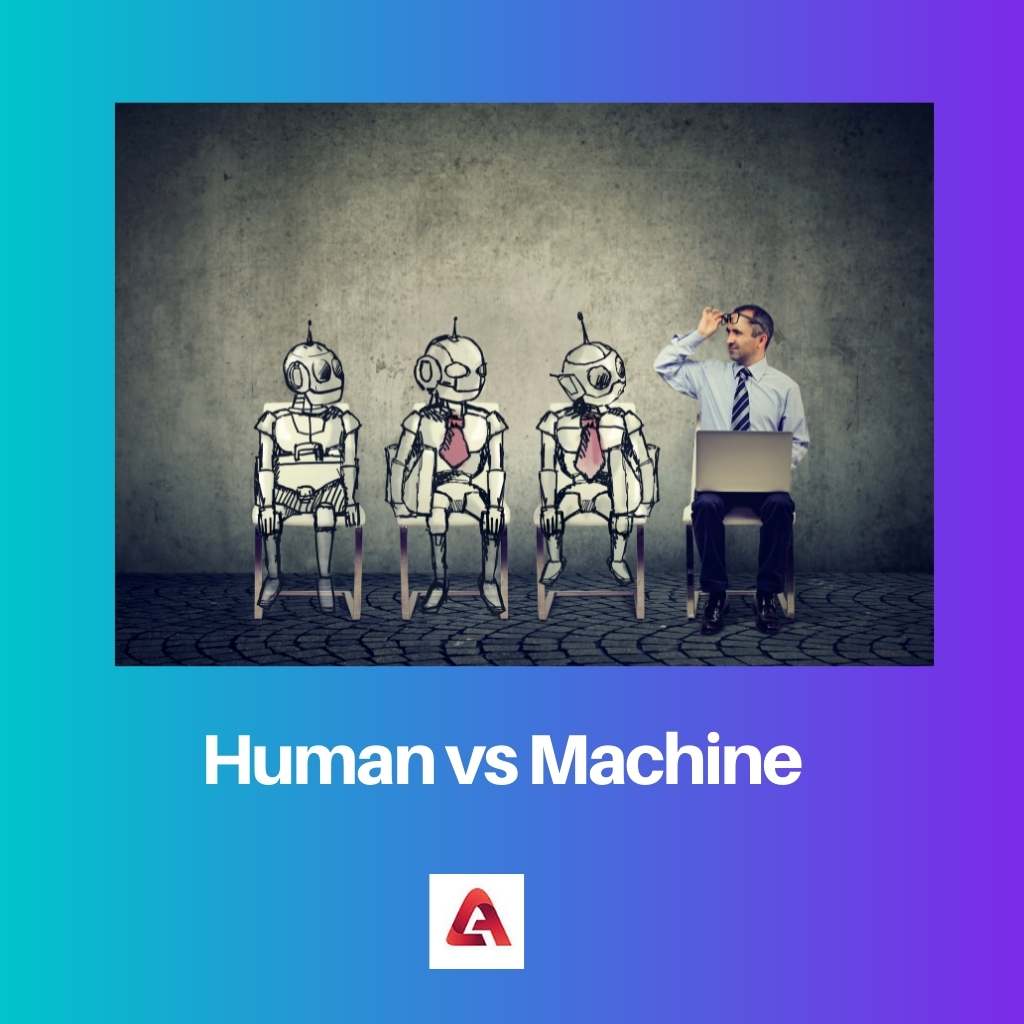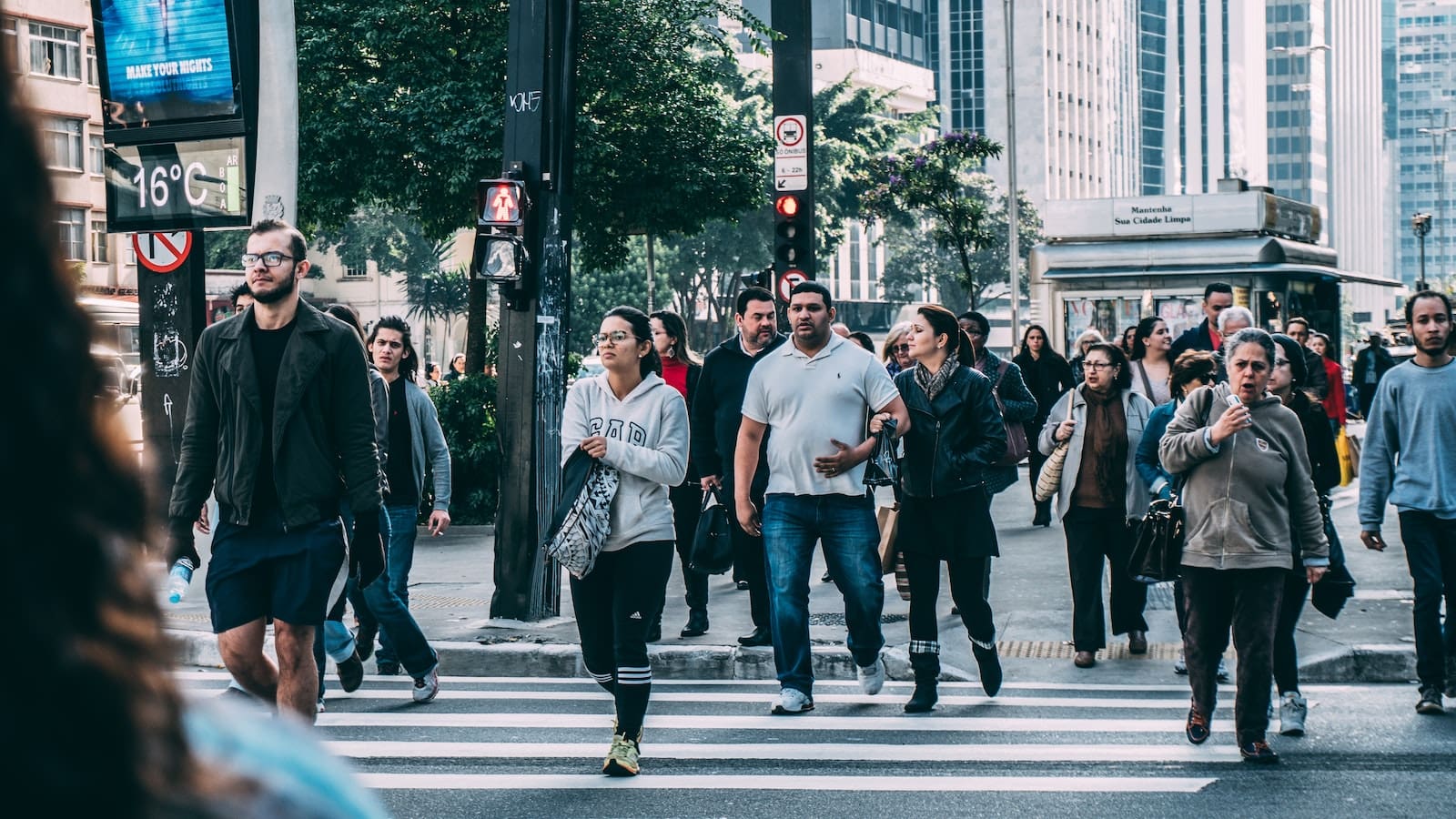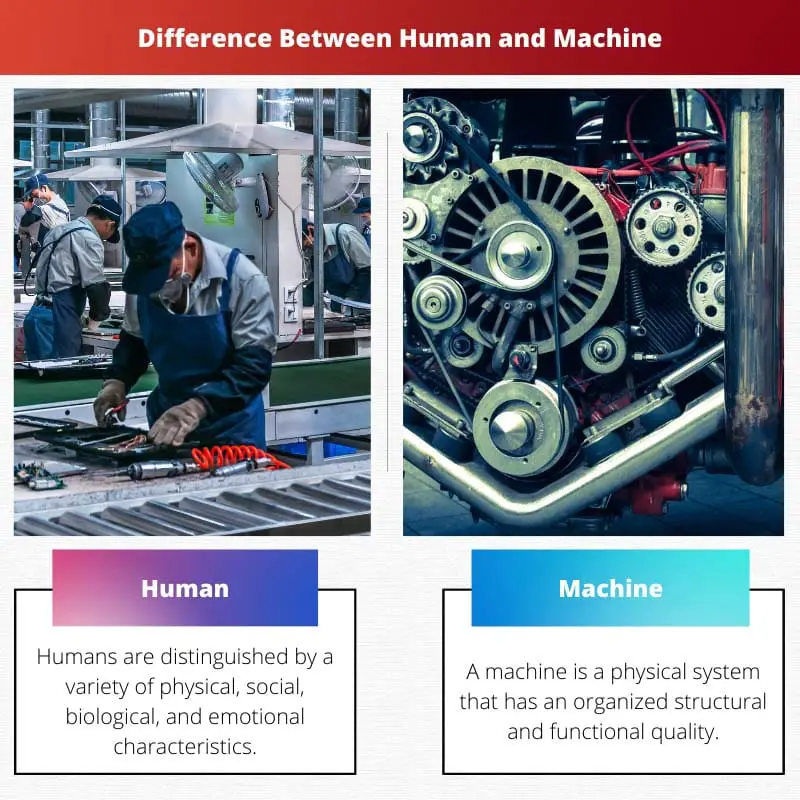Everyone understands that humans and machines are not the same. Humans invented machines to help them do their jobs more efficiently.
Humans are becoming increasingly reliant on machines in their daily lives. Machines have ushered in a revolution, and no human being can imagine a life without them.
Key Takeaways
- Humans are biological organisms, while machines are artificial devices.
- Humans can have creativity, emotion, and subjective experience, while machines rely on programming and algorithms to perform tasks.
- Humans have the physical strength and endurance limitations, while machines can perform repetitive tasks with high accuracy and efficiency.
Human vs Machine
Human refers to a member of the Homo sapiens species, characterized by bipedalism, opposable thumbs, large brains capable of complex reasoning, and a capacity for language and culture. A machine refers to a device or mechanism designed to perform a specific task or set of tasks.

Humans are distinguished by a variety of physical, social, biological, and emotional characteristics. With its numerous neurons and synaptic potential, the human brain contributes to the human mind.
The human mind differs from the brain in two ways: the brain is a concrete, visible element of the physical body, but the mind is an ethereal world of ideas, feelings, beliefs, and consciousness.
A machine is a physical system that has an organized structural and functional quality.
It might be a man-made or naturally occurring molecular machine that utilizes power to apply forces and regulate movement in order to execute an activity.
Machines excel in accurate repeated actions, faster responses, storing and recalling larger quantities of data, logical reasoning, and so on.
Comparison Table
| Parameters of Comparison | Human | Machine |
|---|---|---|
| Presence of Life | They have life. | They do not have life. |
| Emotions | They have emotions and feelings. | They don’t have any feelings or emotions and work according to their mechanics. |
| Originality | Humans can be creative and create original work on their own. | Machines can’t be creative or create anything originally. |
| Intelligence | They have intelligence. | They only have artificial intelligence. |
| Consciousness | They have a conscience. | They don’t have a conscience and do everything they are configured to do. |
| Speed | They are slower than machines. | They have a faster speed at analyzing data. |
What is Human?
Humans outperform machines in terms of originality, inventiveness, fast retraining, working under overloaded settings, reasoning inductively, assessing risks for unforeseen events,
utilizing equipment beyond its defined limitations, perceiving specific stimuli that machines cannot, and so on.
A human is a living being who needs oxygen to survive. Humans have a brain that allows them to make decisions and perform various tasks based on their surroundings.
Humans do not require input from others.
They are free to make their own choices. Every person works at a different speed when it comes to certain tasks.
The human brain is only used by one person. Nobody else can utilize their intellect to do their task.
They do not require any operating system to carry out actions. Humans require food and oxygen to thrive.
Humans have a fixed speed that cannot be increased. Humans experience emotions and feelings.
Humans can sense a person’s personality through the words of others. This can evaluate someone’s emotions simply by looking at them.
Humans have multiple genders, which allows them to be recognized and have varied bodily structures.
Humans are born and have children. They develop over time.
They can’t be changed. Humans can communicate in a variety of languages. Humans have the ability to listen to others.
Humans have a tendency to forget things that are no longer helpful to them. Humans have the ability to think about anything, which allows them to make decisions.

What is Machine?
A machine is a device with a specific function that supplements or replaces human or animal effort in the performance of physical activities.
A machine’s input, output, converting, modifying, and sending devices are all present.
Even though machines are extremely intelligent, they are incapable of doing unique tasks. Machines do not think in original ways.
It is also important to highlight that machines are not superior to humans. Because machines rely on people for guidance, their performance is limited.
Animals and people may power machines and natural forces like wind and water, chemical, thermal, and electrical energy.
The greatest distinguishing feature of a machine is that its components are linked and steered in such a way that their relative motions are constrained.
The piston of a reciprocating engine, for example, is confined to travel in a straight route relative to the block by the cylinder; points on the crankshaft are restricted to move in circular pathways by the main bearings;
no other types of relative motion are feasible.
Parts are only partly restricted on some machines. The trajectories of the components relative to one another may be fixed if they are connected by springs or friction members.
According to the definition, both forces and movements are communicated and changed in a machine.

Main Differences Between Humans and Machine
- A human has life, whereas a machine doesn’t.
- Humans have emotions and feelings, which makes them humane. They also have emotional intelligence. On the other hand, machines don’t have any emotions and work mechanically. They have no emotional intelligence.
- Humans have originality and can be creative when working, whereas a machine can’t be original or creative when doing a task.
- Humans have intelligence, and machines have artificial intelligence.
- Humans have a conscience telling them what’s wrong and right. On the other hand, a machine has no conscience and no morals or ethics or humanity and does whatever they are configured to do.
- Humans tend to be slower when carrying out tasks or analyzing data, whereas machines are faster at analyzing any data.

- https://d1wqtxts1xzle7.cloudfront.net/44854646/Humans_and_Machines-with-cover-page-v2.pdf?Expires=1637673444&Signature=JSzga~HGt035nmaodyBIKVlmEPSAFlAQy~vSct1YNlTm1UZ-I824Mwxcn0Xn39xFBN6hnj3jztCKMX9f~Oi0i16HdYfqcQEuVTrV9bMvvA0~Tgyv6VQHsN01Gk9UI~p5kk5V~ShvF0qiOD3BP6bT2C~oZSoz0OlTfJyDKx00uqQlkI4pG~vzqwlW3ivaFNHNvPgtkD~rnvWNs~2kjTntnnSkijofikYkcwy6N0foEYdM-c36LozExatCDDmlxzmpc6mcsWomxTW4SwQClEE4V1ck5jNgzvWWRzxYMO2EJt2gO0NYZUtTEcmQdhA7jHbibY3-9CVUBluVx0POZzPs0w__&Key-Pair-Id=APKAJLOHF5GGSLRBV4ZA
- https://ieeexplore.ieee.org/abstract/document/1363915




